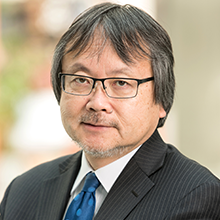
The World Bank Group is meeting the enormity and urgency of these crises head-on with the largest response in its history. It has called upon the full array of its financial resources, operational expertise, and global partnerships to save lives, protect people, preserve jobs, strengthen resilience, and restore growth. It is helping countries worldwide navigate the uncertainties and move forward on the path to recovery. Total Bank Group financing for the 24 months between April 2020 and March 2022 reached
$219 billion, including from the World Bank (IBRD and IDA), IFC, MIGA, and trust funds.
This mobilization has included the effective use of trust funds and financial intermediary funds (FIFs) that complement and contribute to the World Bank Group’s core funding and activities. In fiscal year 2022 (FY2022) from July 1, 2021 to June 30, 2022, the World Bank Group disbursed $5.8 billion of trust fund financing.
These resources support a wide variety of projects being implemented by recipients on the ground, as well as administrative, knowledge, and advisory services provided by the World Bank Group staff to support client needs, project preparation and implementation, and wide-ranging global public goods. The relatively modest volume of these disbursements—5 percent of total World Bank project disbursements and 25 percent of administrative expenditures in FY2022—belies their many advantages and the out-sized role they play in specific areas that enhance World Bank Group efforts to end extreme poverty and promote shared prosperity in a sustainable way.
The World Bank Group makes strategic use of trust fund resources to complement its own funding and advance the development priorities of its clients. Taking a look at FY2022 and the last five years (FY2018–22), this annual report showcases how the World Bank Group manages and utilizes trust funds and FIFs to deploy financing quickly, expand operations, and generate new knowledge to support client countries during these turbulent times.
Trust funds and FIFs have supported rapid responses to the COVID-19 pandemic and other emergencies. In the first 10 months of the pandemic (March–December 2020), World Bank trust fund commitments totaled $644 million for COVID-19 related operations. When war erupted in Ukraine in February 2022, the World Bank Group disbursed $2.45 billion of trust fund resources to support Ukraine from April to June 2022.
Early trust fund support for the preparation of new World Bank investment projects was particularly important in ramping up the Bank’s COVID-19 response. In-country operations and experiences over the last two years have also led to the development of a new global trust-funded program and a new FIF. They aim to help low-income countries strengthen the resilience of their health systems and facilitate investments in pandemic prevention, preparedness, and response.
Trust funds and FIFs have extended the Bank Group’s reach in countries affected by fragility, conflict, and violence (FCV), non-member countries, countries in arrears, and non-sovereign entities that cannot receive World Bank Group financing. FCV-affected countries have received more than half (57 percent) of total World Bank trust fund disbursements for recipient-executed activities during the last five years. This includes helping to protect the poor and most vulnerable during active and post-conflict situations in Afghanistan, West Bank and Gaza, and, most recently, Ukraine, which received 71 percent of World Bank trust fund disbursements to recipient-executed activities in countries impacted by FCV in FY2022. Two new trust funds were established to support Ukraine’s efforts to rebuild.
Development partners have also continued to demonstrate their commitment to the people of Afghanistan. Operations in Afghanistan were paused due to political instability in 2021, but the Afghanistan Reconstruction Trust Fund has supported work- arounds to get $1.07 billion of trust fund resources flowing through UN agencies to help deliver essential health services and other emergency assistance to the Afghan people.
Trust funds and FIFs have supported the generation and dissemination of knowledge, data, tools, and advice to advance crisis recovery efforts and to achieve long-term development goals. During the last five years, trust funds have financed 63 percent of the World Bank’s advisory services and analytics (ASA), providing countries with guidance and recommendations on strengthening policies, institutions, and investments. ASA is a core component of the World Bank Group’s knowledge services and products, which also include diagnostic tools and guidelines that support Bank Group operations and global public knowledge goods that are widely shared to support better development outcomes. Approximately 70 percent of the World Bank trust fund disbursements for Bank-executed country and global engagement activities in the last five years have supported knowledge products and services.
Over 40 trust-funded activities from around the world are featured in this report. They demonstrate the many ways trust funds and FIFs are contributing to the four development outcomes the World Bank Group has focused on delivering throughout the pandemic and compounding global crises, namely, saving lives, protecting the poor and most vulnerable, ensuring sustainable business growth and job creation, and strengthening policies, institutions, and investments for rebuilding better.
Our robust response has relied on strong collaboration, and we thank all our development partners, implementing partners, and recipient clients for their unwavering commitment and determination during these challenging times. The path to recovery is not easy but, together, we are navigating the uncertainties and progressing toward a greener, more resilient, and more inclusive future for all.
Akihiko Nishio
Vice President
Development Finance, World Bank Group
